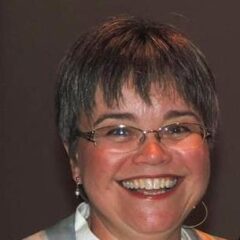Viewpoints is a SpokaneFāVS feature where our writers respond to a weekly question. Readers are invited to participate by posting in the comment section below.
April is Sexual Assault Awareness Month, a time when people raise awareness about sexual violence and how it can be prevented.
So, we asked FāVS writers to chime on this week’s Viewpoints:
How should religious and/or community organizations deal with supporting victims and preventing sexual assault within their memberships?
Steven Simmons: Believe the victim

A common refrain of survivors is that the fallout from reporting abuse can be greater than the initial trauma and compound the initial abuse. Unfortunately, the first impulse of leaders is often to protect the institution instead of the victim. This can lead down a horrific path of minimizing the abuse, veiled threats, honor code investigations, church disciplinary actions, even leaders publicly defending the abuser and shaming the victim.
What can community leaders do in order to better prevent abuse and support victims? And what should they avoid doing?
First, trust and believe the victim. Never question or suggest fault in their memory, their motives, or their own behavior and emotions. For adult victims, do not share their story unless they give you permission (even with the authorities).
Second, know that your first priority is to the victim. There may be riots in the pews, reputations tainted, individual lives destroyed, families torn apart: none of that should ever stand in the way of providing support to a victim in your community.
Third, practice compassionate listening: don’t give advice, judgement, analysis, or insert your own emotional responses into their story. This is important to do within your community before abuse happens, as it will let them know you are a safe person that will be there for them when they truly need it.
Fourth, know your local resources for abuse survivors. Educate yourself on the experiences of survivors – listen to their stories. When resources are needed, provide them, and be there to support them through the process.
Fifth, do not focus on forgiveness, redemption, or trying to find “meaning” in the abuse. Many communities try to expel any negative emotions surrounding an event at the expense of the victim, eager to compel a victim to forgive and offer redemption to abusers. By letting the “redeemed” abuser back into the community, you are telling the victim their abuser’s redemption is being placed above their safety and have created anything but a safe space for that victim or any other survivor in your community.
Andy CastroLang: We need to talk about “rape culture”

I would like to see more communities really talk about the whole “rape culture” towards women, that keeps us anxious and alert, hyper aware and downright afraid for our lives and our children’s lives.
I want men to begin to understand what this means and help dismantle it.
Matthew Sewell: Training is needed

One of the myriad of positive changes to come out of the horrifying sex abuse scandal in the Catholic Church was the instituting of mandatory Safe Environment training for any person who will come in contact with youth at any point. As a result, where beforehand perhaps the safety of children was taken for granted — if not wholesale, then at least taken too much for granted —it’s now, in every diocese in the world, kept at the forefront of every conversation surrounding children in the church.





